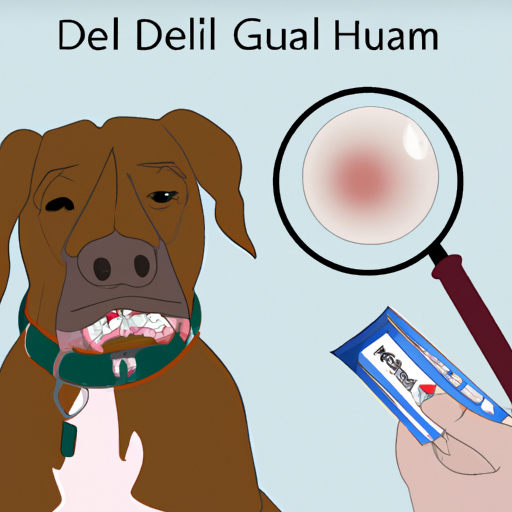Introduction
Your dog is more than just a pet, they are part of your family. This means their health is paramount, and you’re always willing to do what it takes to keep them healthy and happy. Today, let’s delve into an often overlooked health issue in dogs – white gums. White gums can be a sign of serious illness in dogs, and it’s crucial to understand how to identify and treat this condition.
Understanding the Root Cause
White gums in dogs can be a symptom of various ailments, ranging from dehydration to anemia. It’s essential to understand the possible causes, as they will determine the course of treatment:
- Anemia: This is a condition where your dog has a lower-than-normal number of red blood cells. It can result from blood loss, destruction of red blood cells, or inadequate production of red blood cells.
- Dehydration: Dehydration can also cause white gums in dogs. If your dog is not getting enough water, their gums may turn pale.
- Shock: In severe cases, white gums can be an indication of shock, a life-threatening condition that requires immediate medical attention.
Recognizing Other Symptoms
White gums are often accompanied by other symptoms. Keep an eye out for:
- Loss of appetite
- Fatigue
- Rapid breathing
- Vomiting or diarrhea
If you notice these symptoms along with white gums, seek immediate veterinary care. These could indicate a serious health problem such as anemia or shock.
Treating White Gums
The treatment of white gums in dogs depends on the underlying cause.
| Cause | Treatment |
|---|---|
| Anemia | Blood transfusion, dietary changes, medications |
| Dehydration | Rehydration therapy, ensuring access to clean water |
| Shock | Emergency veterinary care, IV fluids, medications |
Remember, your vet is the best person to diagnose the cause of your dog’s white gums and recommend a treatment plan.
Prevention
While it’s not always possible to prevent white gums, there are steps you can take to promote your dog’s overall health:
- Ensure your dog has access to clean water at all times.
- Feed a balanced diet to prevent nutritional deficiencies.
- Regular vet check-ups to catch potential health issues early.
FAQ
Q: Is white gums in dogs a sign of a serious health issue?
A: Yes, white gums can potentially indicate serious health problems such as anemia or shock. If your dog’s gums are white, seek veterinary care.
Q: Can dehydration cause white gums in dogs?
A: Yes, dehydration can cause white gums. Ensure your dog always has access to clean water.
Q: How can I prevent white gums in my dog?
A: Regular vet check-ups, a balanced diet, and ensuring your dog has access to clean water can all promote overall health and potentially prevent white gums.



